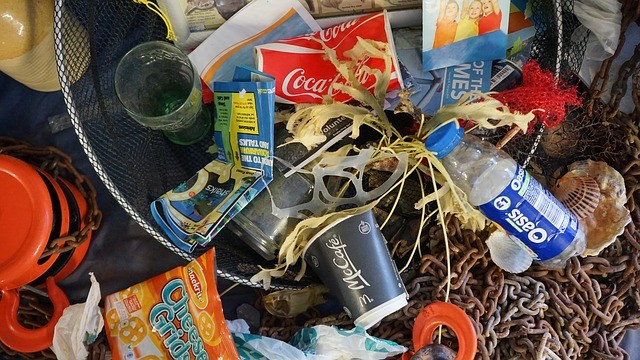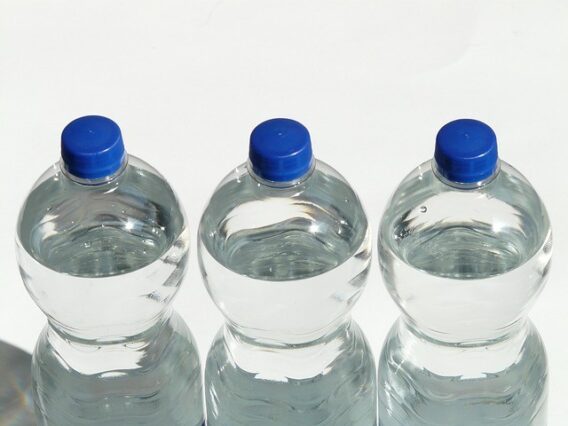Plastic is a problem.
Most plastics never biodegrade fully. While it seems like it disappears over time, in reality the plastic particles just get smaller and smaller, entering the food chain on a microscopic level. That means nearly all the creatures on the planet have plastic particles in their stomachs.

If you think about the chemicals used to make plastics, having it in your system is not a pleasant thought.
Why is plastic harmful to your health?
Many plastics used in everyday products, such as food containers and the drinks you buy, contain BPA (Bisphenol-A). This is a synthetic chemical that is used to harden plastics. Other toxic chemicals in plastic include polyethylene and phthalates.
It is only recently that the possible health concerns about it have come to the fore. According to this website, there is a cause for concern about the effects of BPA on the brain, behaviour, and glands in foetuses, infants, and children. It disrupts the hormonal balance, affects male fertility, and increases the risk of developing heart conditions and some cancers.
How are we exposed to BPA?
It is likely that we all have some BPA in our bodies right now, as the chemical can leech from plastic when it is heated or scratched.
The means any food or drink stored in plastics put us at risk from BPA exposure. That included tinned foods where the lining inside the can uses plastic.

When you think about the foods you buy form the supermarket, most will be in some sort of plastic wrapping. That is just the end result! BPA can get into foods at every stage of processing too!
The good news though, is that BPA can be flushed from our systems quickly, as long as you know what to avoid.
How to Reduce the Risks
Thankfully, there are ways to help reduce you and your family’s exposure to BPA.
• Don’t buy single use plastics, instead go for BPA free drinking bottles and sippy cups. Thankfully there are a plenty around to buy for children and adults. It also has the added advantage of reducing your plastic waste too.
• Drink tap water over bottled. While tap water will still contain BPA particles, it is much less than what you’d find in water that is bottled in plastic and has sat on a shelf for months.
• Avoid packaged foods. Buy loose fruits and vegetables instead. Go for milk in glass bottles if you can.
• Buy dried goods in bulk, minimising the use of plastic.
• Use reusable sandwich wrappers such as waxed paper, instead of cling film. Or buy some BPA free tubs to put sandwiches in.
• Only get a receipt if you really need it. Yes, the ink used on store receipts contains BPA that is easily transferred onto your hands
• Choose personal care products that come in glass jars and bottles, or paper packaging.
• Go for natural fibre clothing, avoiding synthetic fibres such as Lycra which contains plastic. Synthetic fibres are one of the key causes of micro-plastics getting into natural water systems, as when they are washed in the laundry, plastic particles are washed down drains. Water treatment plants are often unable to remove micro plastics, and they can eventually end up in rivers and seas.
While completely eliminating exposure to BPA and other harmful toxins in plastic may be impossible, being more aware of the issue will help you to reduce your exposure.
By making small changes where you can will significantly reduce the amount of toxins in your body, and could make a huge difference to your overall health. For example you might choose to use wooden or glass chopping boards, or to stop using cling film.
The more of us who choose to make a difference, by reducing the plastic we use, sends a clear message to brands and manufacturers that we are not willing to risk health over convenience. As a society we are more informed, and together we can help make a change.
